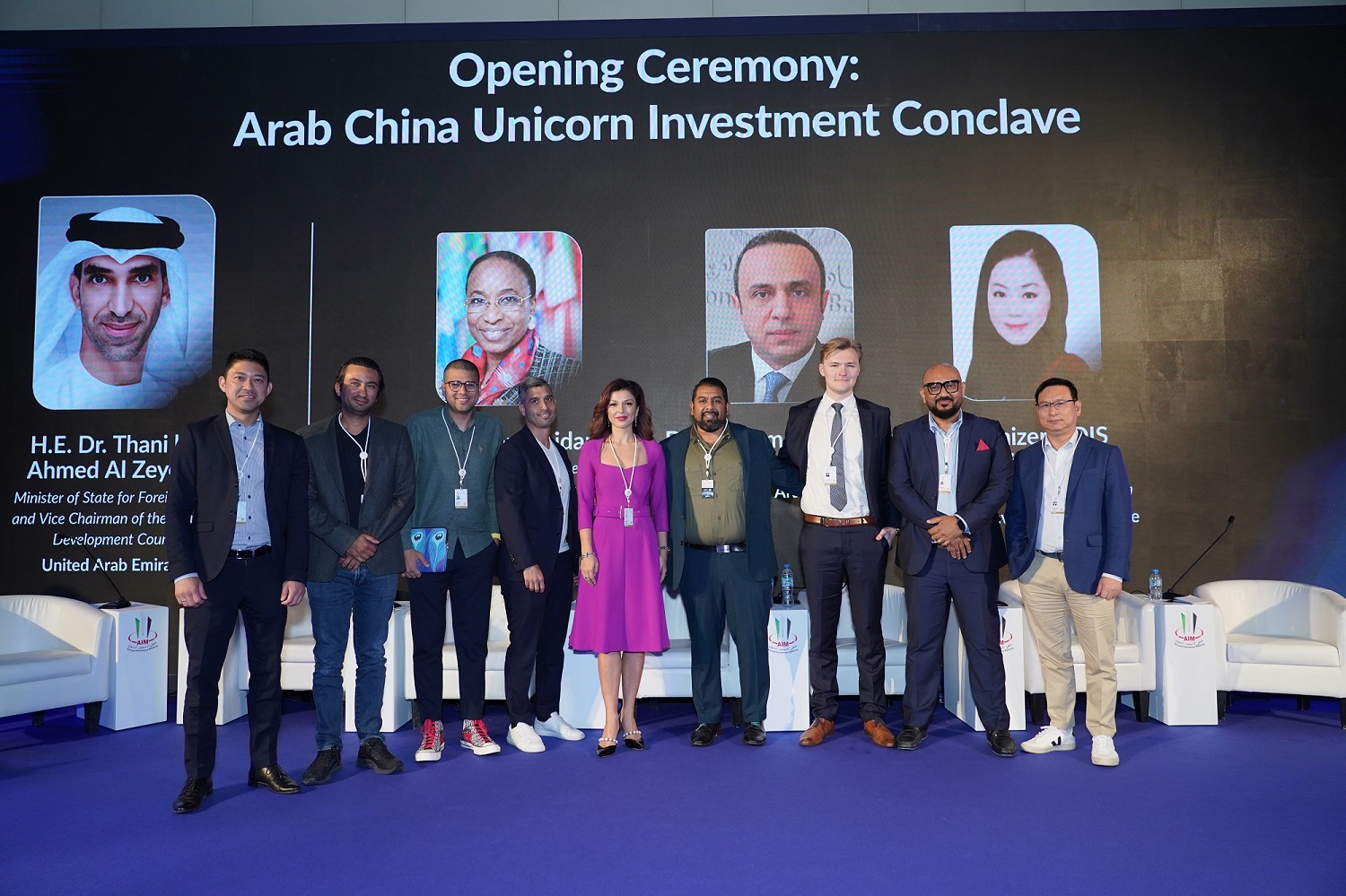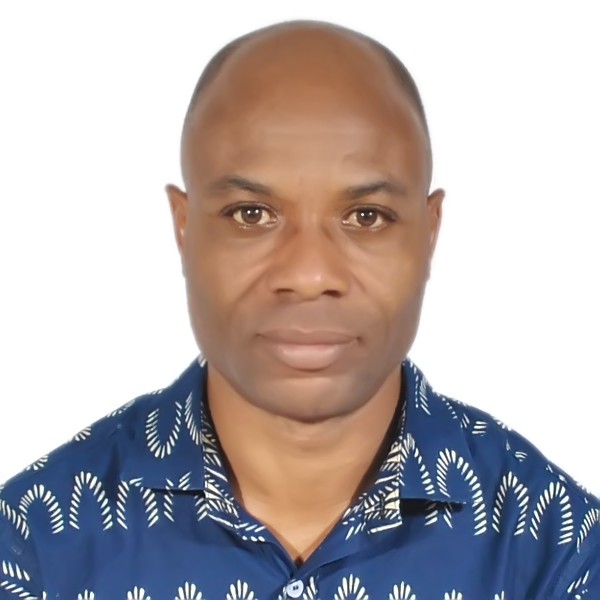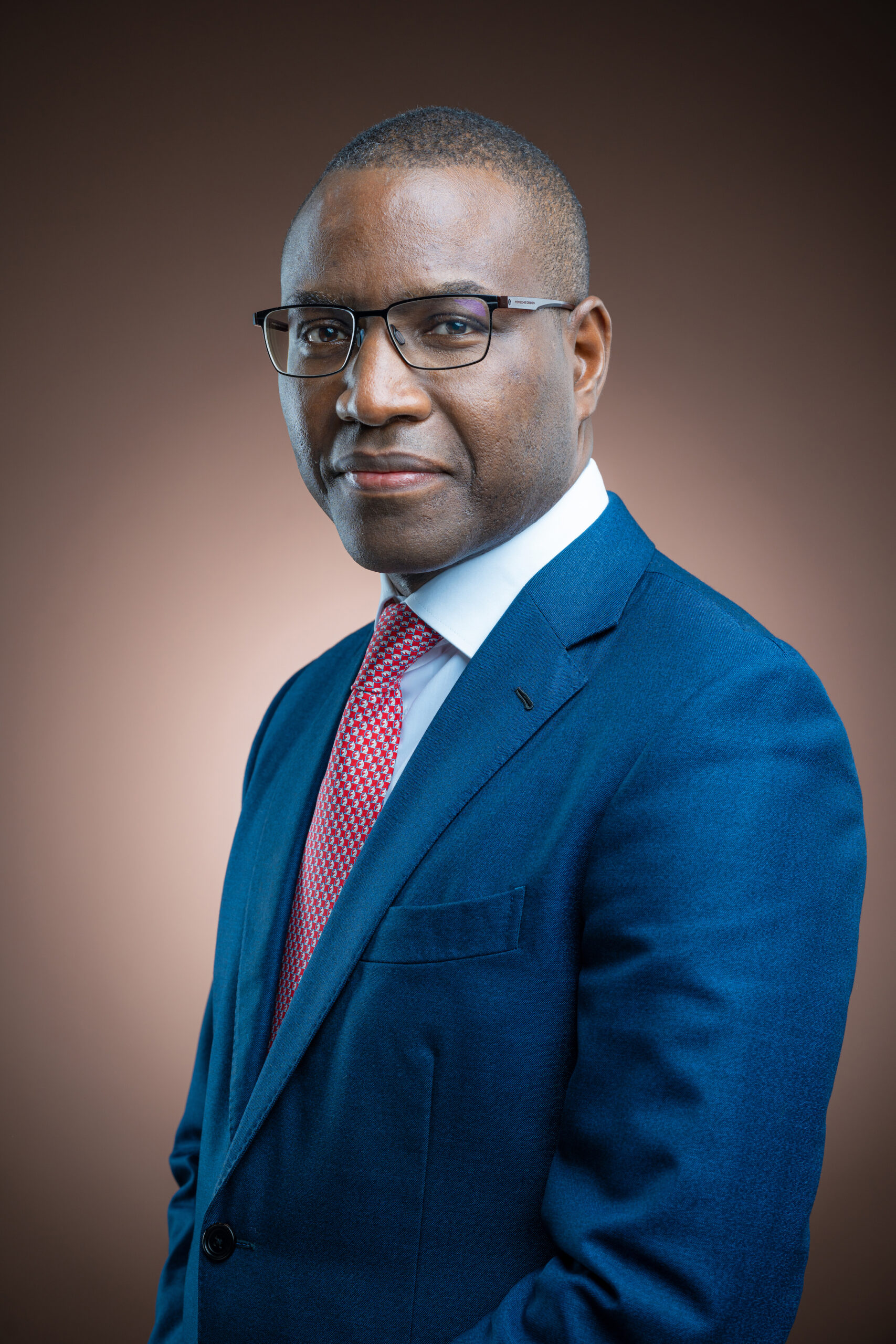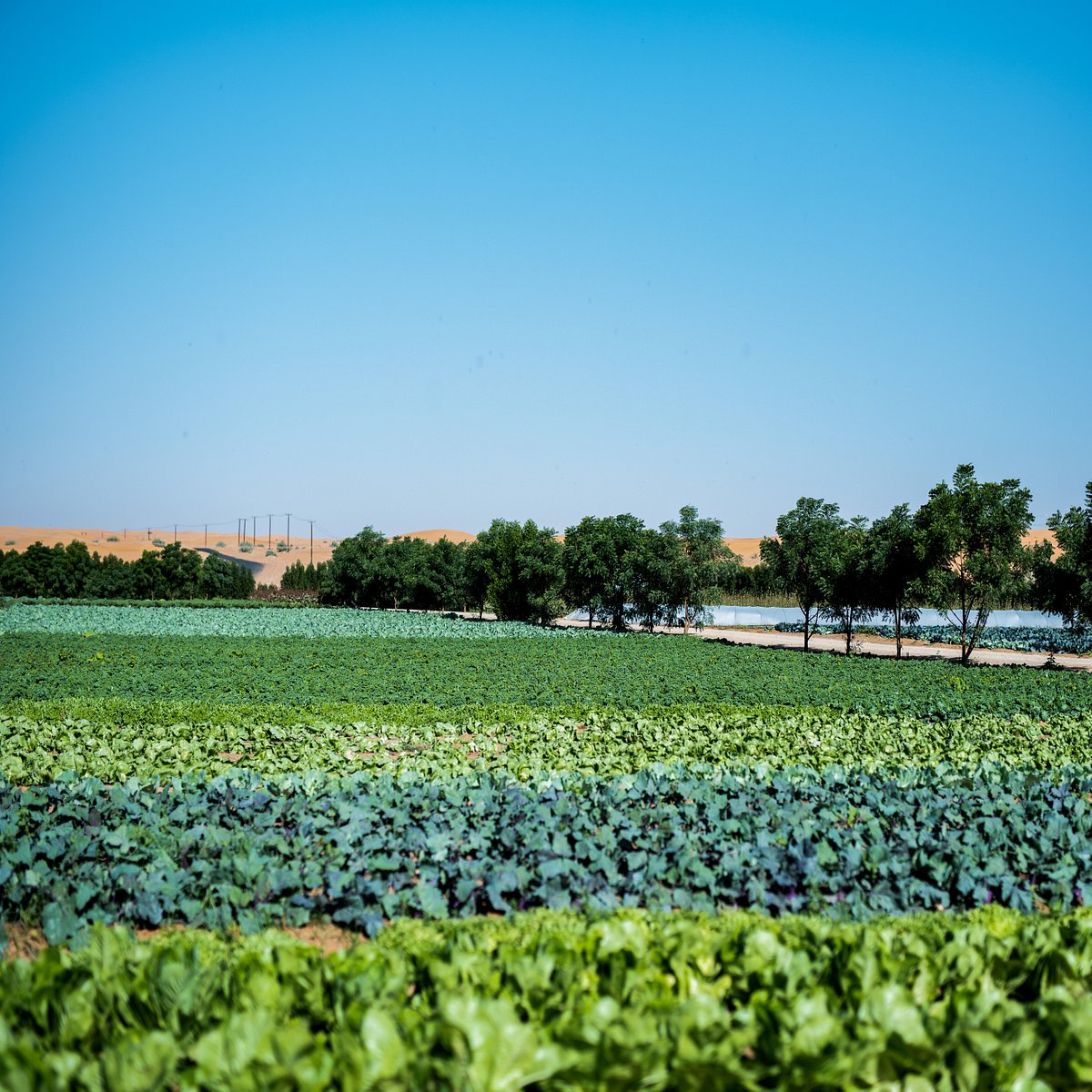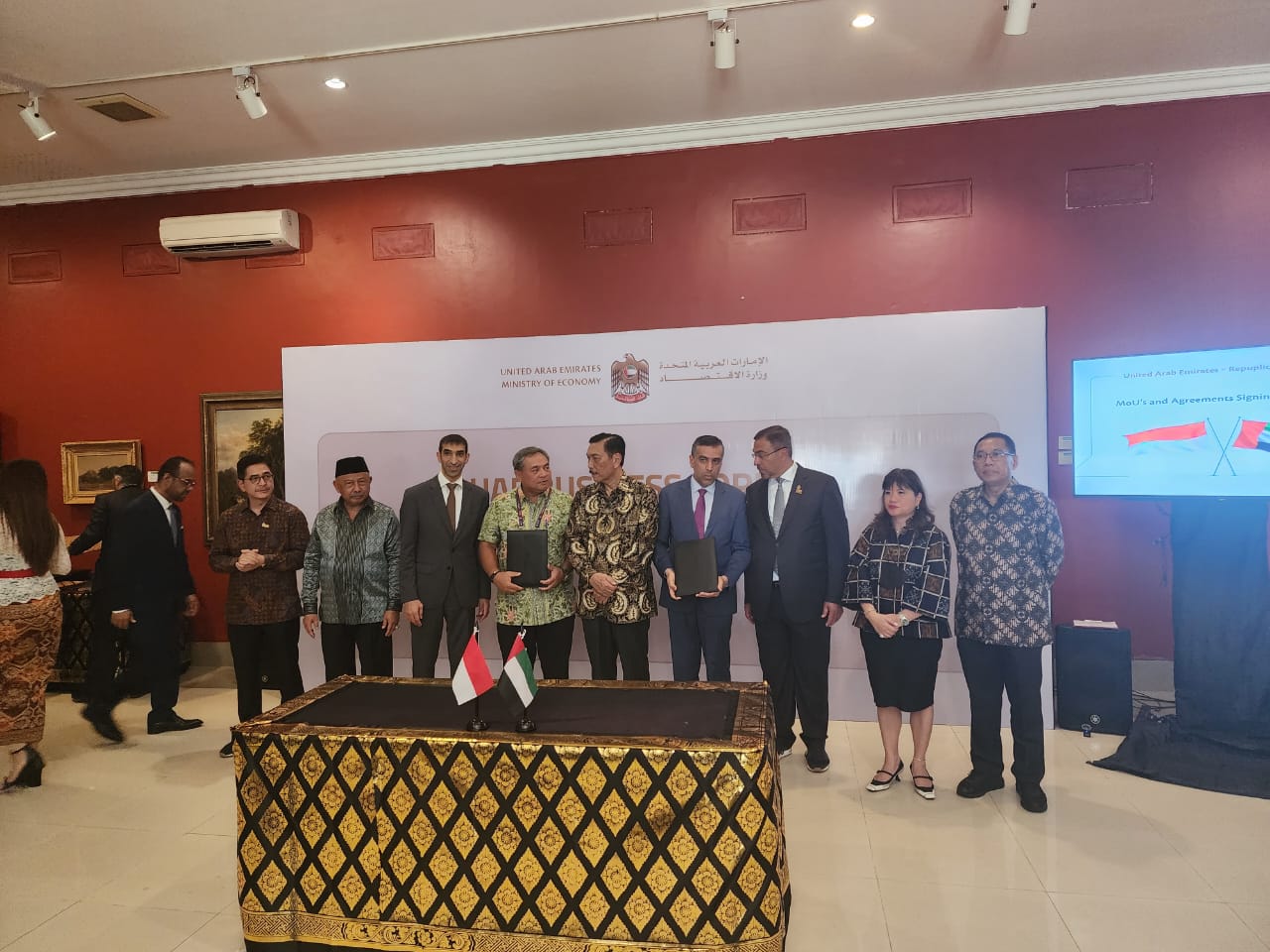The conclave served as a platform to discuss global economic outlook, sustainable development, and social value creation in a city context, among other topics
Abu Dhabi, UAE, 9 May 2023: The 12th edition of The Annual Investment Meeting (AIM) hosted the China Top 50 Unicorns. The event took place at the Innovation and Technology Track located at the Abu Dhabi National Exhibition Centre, and brought together investors, startups, and innovators from the UAE and China.
The forum marked an opening ceremony for ‘Arab China Unicorn Investment Conclave’ by HE Dr. Thani bin Ahmed Al Zeyoudi, the UAE Minister of State for Foreign Trade and saw the esteemed presence of Dr. Wissam Fattouh, Secretary General Union of Arab Banks and Mariam Gao, General Secretary of Arab China Unicorn Investment Conclave.
HE Dr. Thani bin Ahmed Al Zeyoudi said, “I am delighted to welcome you to the opening ceremony of the Arab-China Unicorn Investment Conclave. Held under the theme ‘Transforming the Future of Investment’, today’s conclave gathers startups and unicorn companies that represent the future of the global economy.
In the UAE, we are proud of our status as a hub for innovation and entrepreneurship and we are committed to support the growth of emerging businesses that will shape the world around us. China is an increasingly important partner in these efforts and today’s event underlines the synergies between both our approach and our ambition.”
HE Dr. Thani bin Ahmed Al Zeyoudi further stated, “The Arab world and China are bound by historic relations. Over the last 40 years, we have enjoyed remarkable progress – particularly in trade and economic cooperation. And this cooperation has yielded a substantial increase in bilateral trade and investment: As of 2021, the UAE was China’s top trade partner in both the Arab and GCC regions – and China the UAE’s largest trading partner globally. In the last year, non-oil bilateral trade grew 18 percent to surpass 72 billion dollars.
Two-way investment is also strong and covers critical industries such as real estate, logistics, storage, financial services, insurance, manufacturing, and technology. In total, these investments amounted to approximately 12 billion dollars in 2021.Today, China is the third-largest foreign investor in the UAE, with investments worth 9.3 billion dollars in 2021. This is a remarkable 514.5 percent increase from the sum invested in the UAE just ten years ago. And I am confident our best days are still ahead of us.”
HE Dr. Thani bin Ahmed Al Zeyoudi also emphasised how this conclave is an opportunity to forge new connections, open up new investment opportunities and spark new ideas that will benefit all of us.
Dr. Wissam Fattouh said, “It’s fantastic news to learn about the flourishing startup and unicorn growth in the Arab region, with the added benefit of evolving government policies to support their expansion. The adoption of AI and blockchain technologies is a promising development, which can enhance the potential of these startups to scale and flourish. The proposed Arab-China union can offer further prospects for collaborative growth. The forthcoming years will be thrilling to observe the Arab startup ecosystem’s persistent advancement and achievements.”
Mariam Gao, General Secretary of Arab China Unicorn Investment Conclave said, “We have assembled here to explore the remarkable opportunities and potential for success. Our objective is to design effective strategies to achieve this goal. We are grateful for the support extended by both private and government organizations from Arab and Chinese institutions, and we hope to establish a collaborative synergy between the two.
In recent years, collaboration between the Arab and China regions has increased significantly. While the Arab world has devised successful strategies, China has emerged as a global economic power. By fostering a partnership, we can attain unprecedented growth and progress. The primary aim of this event is to bring together the two nations and create a platform for mutual collaboration.
We acknowledge that there will be modern-day challenges, but we are confident of finding solutions to overcome them. We believe that this partnership has the potential to generate impressive returns and contribute positively to the world. Our dedication is towards supporting the unicorn ecosystem in this region, promoting economic growth, and improving the lives of the people.
The forum also featured a session titled, ‘Unicorns: Urban Connectivity in Turbulent Times’. This was moderated by Kim Zietlow- Director, FDI Center who said, “The impact of economic turbulence can be far-reaching and affect both individuals and the economy as a whole.
Unemployment, reduced consumer confidence, decreased investment, inflation, and government intervention are some of the factors that come into play during such times. It is crucial for governments and businesses to respond proactively and implement strategies to mitigate the negative effects. Unicorns can play a significant role in promoting urban connectivity and creating job opportunities, encouraging economic growth and stability.”
It featured speakers as Walid Mansour, CEO – Middle East Venture Partners (MEVP), Mohamed Salah, Country Manager – Startup Grind, Kareem Elsirafy, Managing Partner – Modus, Mansoor Madhavji, Partner at Blockchain Founders Fund and LP at Loyal VC & Draper Goren HolmAntek, Antek Kałuża, Creative Director – Econverse & Vice President of Warsaw Startup Club, Marianna Bulbucr, CEO & MP of Bizzmosis Group, Sean He, Founder – Silicon Harbour Capital.
Walid Mansour, noted that the investment focus has shifted towards biotech and new tech-based businesses, with a focus on creating returns to run economic cycles and considering various types of environments, including economic and health environments, while planning investment strategies. The importance of branding was also emphasized.
Mohamed Salah, highlighted the benefits of working from home, including increased flexibility and work-life balance, reduced commute time and costs, and improved productivity and job satisfaction. However, he also mentioned the challenges associated with remote work, such as social isolation and difficulty with collaboration and communication.
Kareem Elsirafy, discussed the increasing significance of climate change on investments, including the demand for sustainable and environmentally friendly investments and the potential impact of extreme weather events on certain industries. He also noted that companies are under pressure to become more environmentally responsible, which can impact their profitability and valuation.
Mansoor Madhavji, expressed his interest in the potential applications of blockchain and crypto, as well as the integration of blockchain and AI.
Antek Kałuża, emphasized the importance of encouraging and supporting young people with innovative ideas through education and skill development, which can drive progress in various fields.
Marianna Bulbucr, highlighted the importance of knowledge and education, as well as practical regulations for startups to thrive, and discussed the UAE’s commitment to delivering value to businesses and sustainability.
Sean He, discussed the UAE’s favorable environment for startups and the importance of collaboration and policy changes for innovation and investment. The panelists also mentioned the impact of the Golden Visa program in retaining more developers and moving towards production rather than just consumption, as well as the importance of data ownership in the AI industry and the continued appetite for new technologies in China’s market.
The highlight of this forum was a Unicorns Pitch Presentation – Unicorns from China will showcase their Top Innovation Projects and pitch their growth plans and potential for investors, which featured a video presentation Micheal LI- managing partner, Breton Company. She said, “Breton, founded in 2017, is the first company to successfully mass produce pure electric construction machinery and mining trucks.
Their major innovative machinery includes the Pure Electric Loader (3, 5, 6 ton) and the Pure Electric Mining Truck (100 ton). By using electric machinery, the Chinese market can save over 10 billion dollars in social expenditure every year. This technology provides the benefits of low cost, renewable energy, and abundant transport capacity, contributing to a more prosperous global economy. Moreover, it has social benefits such as improving the working environment and protecting the rights and interests of workers.”
Another presentation was presented by Lawrence Xiong – CEO of Armclouding, where he discusses how Armclouding plans to reshape the gaming industry. With hundreds of millions of users and over 100,000 developers, the Chinese gaming market is massive. WeChat and QQ have already launched instant-play platforms with a total revenue of 5 billion dollars in 2022 and a growth rate of 30%.
China’s self-developed mobile games have also reached USD 39 billion in overseas markets, with an estimated market share of 45% in the global mobile market. Armclouding offers solutions to the gaming industry, such as instant-play games that don’t require downloads or registration, as well as interactive game streaming that allows users to interact while playing. The company aims to build a new global game community with an expected scale of more than 100 billion US Dollars.
Next in line was a presentation by Mr. Martin Qu is the co-founder of Xiaoudida Smart Car Wash, which is recognized as the largest car wash company in China. With China having the largest automotive market and a significant potential for growth, the company has experienced a surge in automobile ownership from 120 million in 2012 to 319 million in 2022.
The company operates on a complete ecological chain, from acquiring consumers to profiting, and utilizes cloud computing for their online business. They provide auto services, 24/7 car washes, and have established over 3700 smart stations in 22 provinces throughout China.
Shenzhen Sharp Light Technology Co., Ltd., under the leadership of Mr. Longdong Chen, also presented. It serves as a leading designer of automotive camera products using single photon avalanche diode technology. They are committed to developing highly efficient, cost-effective, and mass-produced unmanned driving perception products that provide unparalleled unmanned driving performance. As a result, they are the world’s leading supplier of automotive perception solutions.
